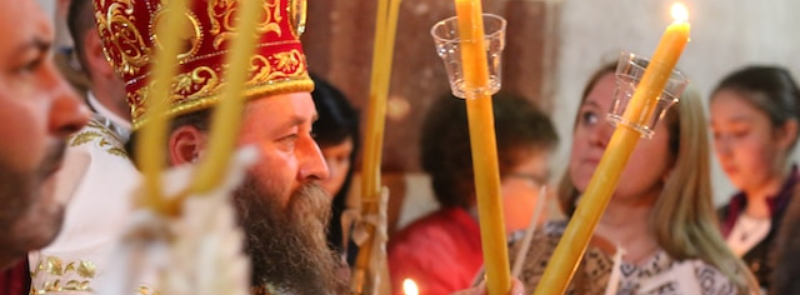
When It Occurs
Annually First Sunday after First Full Moon Following Passover
Timeline
Days Passed (658)
# Hashtags
#OrthodoxEaster #Pascha
Numerous Orthodox churches determine their Easter date according to the Julian calendar, a system that frequently diverges from the Gregorian calendar commonly employed in many Western countries. Consequently, the Orthodox Easter period frequently occurs later than the Easter period associated with the March equinox.
Date: Varies annually, but it is celebrated on the first Sunday after the first full moon following Passover, often later than Western (Gregorian calendar) Easter.
Known As: Pascha
Significance: Orthodox Easter, or Pascha, is the most significant and holiest celebration in the Eastern Orthodox Christian Church, commemorating the resurrection of Jesus Christ from the dead.
Background
Orthodox Easter is rooted in early Christian traditions and follows the Julian calendar for its calculation, unlike Western Christianity, which uses the Gregorian calendar. This often results in Orthodox Easter being celebrated on a different date than Western Easter.
Liturgical Preparations and Observances
- Great Lent: A 40-day period of fasting, prayer, and penance leading up to Holy Week. It begins on Clean Monday, seven weeks before Easter.
- Holy Week: The final week of Great Lent, leading up to Easter Sunday, is filled with significant events and services:
- Palm Sunday: Celebrates Jesus’ triumphant entry into Jerusalem.
- Holy Monday to Holy Wednesday: Services focus on Jesus’ teachings and parables.
- Holy Thursday: Commemorates the Last Supper and the washing of the feet.
- Good Friday: Observes the crucifixion and death of Jesus. This day includes solemn services such as the procession of the Epitaphios (a cloth icon symbolizing Jesus’ burial shroud).
- Holy Saturday: A day of mourning leading up to the resurrection. The Midnight Office service begins late at night and transitions into the Paschal Vigil.
Paschal Vigil and Divine Liturgy
The Paschal Vigil is the most important service of the Orthodox Church year. It begins late on Holy Saturday and continues into the early hours of Easter Sunday.
- Lighting of Candles: The service starts in darkness, symbolizing the darkness of the tomb. At midnight, the priest lights a candle from the eternal flame, and the light is spread among the congregation, symbolizing the resurrection of Christ.
- Paschal Troparion: The joyous hymn "Christ is Risen" (Χριστός ἀνέστη) is sung repeatedly.
- Procession: A procession around the church represents the women visiting Jesus' tomb.
- Paschal Divine Liturgy: The Divine Liturgy is celebrated with great joy, including readings from the Acts of the Apostles and the Gospel of John, which proclaim the resurrection.
Easter Sunday
- Feasting and Celebration: After the long period of fasting, Orthodox Christians break their fast with a feast. Traditional foods include lamb, eggs, and Pascha bread (a sweet, rich bread).
- Red Eggs: Eggs, often dyed red to symbolize the blood of Christ, are an essential part of the celebration. The custom of cracking eggs symbolizes the resurrection, with the breaking of the shell representing the opening of Jesus’ tomb.
- Greeting: The traditional Easter greeting is "Christ is Risen!" (Χριστός ἀνέστη, Khristós Anésti), to which the response is "Indeed He is Risen!" (Ἀληθῶς ἀνέστη, Alithós Anésti).
Cultural Traditions
Orthodox Easter is celebrated with various customs and traditions across different cultures, reflecting the diverse practices of the Orthodox Christian world.
- Greece: In Greece, celebrations include fireworks and bonfires. Lamb is often roasted on a spit, and a special soup called “magiritsa” is eaten after the Paschal Vigil.
- Russia: Russian Orthodox Christians bake “kulich” (a tall, sweet bread) and make “paskha” (a dessert made from cheese, butter, and eggs). Churches are adorned with flowers, and people participate in processions and services.
- Eastern Europe: In countries like Bulgaria, Romania, and Serbia, similar customs are observed, including elaborate church services, festive meals, and egg-cracking games.
Conclusion
Orthodox Easter, or Pascha, is a deeply significant and joyous celebration for Orthodox Christians worldwide. It is marked by extensive liturgical observances, fasting, prayer, and festive customs that reflect the profound importance of the resurrection of Jesus Christ in the Orthodox faith. The celebration is not just a religious event but a time for community, family gatherings, and cultural expression, making it a cornerstone of Orthodox Christian life.


